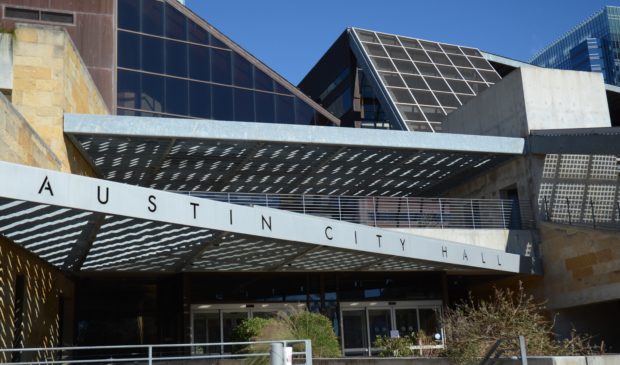Which candidates will receive the city’s Fair Campaign money?
Tuesday, November 15, 2022 by
Jo Clifton Runoff candidates who followed the rules for receiving disbursements from Austin’s Fair Campaign Finance Fund are expecting to receive thousands of dollars to help them in the Dec. 13 runoff election. Those candidates include Daniela Silva and Linda Guerrero and possibly José Velásquez, Zohaib Qadri and Ryan Alter.
Silva and Velásquez will be competing in City Council District 3, Guerrero is running against Qadri in the District 9 race, and Alter is in the District 5 runoff against Stephanie Bazan.
The city adopted the Fair Campaign Ordinance in 2008 an attempt to make elections more fair and less costly, to even the playing field between wealthy and less wealthy candidates. The ordinance aims to safeguard “the city election process and city government from undue influence” and promote public confidence in the government. However, many candidates, especially those running for mayor, never consider signing the contract required of participating candidates because the election is simply too costly.
City Clerk Myrna Rios did not respond to a request for information about which candidates would be receiving the money, but she has been corresponding with Betsy Greenberg, a member of the city’s Ethics Review Commission, and attorney Bill Aleshire, who is representing Guerrero.
Aleshire has shared those emails with the Austin Monitor. Greenberg raised the question of whether any candidates besides Silva and Guerrero were eligible to split the more than $60,000 currently in the Fair Campaign Finance Fund.
Aleshire has argued that any candidate who did not sign the Fair Campaign contract “within 30 days after accepting a campaign contribution or making a campaign expenditure for this election, (is) not eligible for the public funding. The same is true, for example, if the candidate had a press conference or issued a press release announcing their definite intent to run in this election, that date of that announcement starts the clock ticking on the deadline to sign the contract.”
Velásquez filed his designation of campaign treasurer with the city clerk’s office on Nov. 17, 2021. He reported accepting donations in January, but did not sign the contract until Aug. 8, 2022, the same day he applied for a spot on the ballot.
Greenberg asked Rios to explain her position vis-à-vis disbursing funds to candidates who did not sign the Fair Campaign contract within 30 days of accepting a contribution. Rios wrote, “Under Section 251.001(1) of the Texas Election Code, a person becomes a candidate by taking ‘affirmative action,’ which includes filing a campaign treasurer appointment (CTA). However, it is difficult, if not impossible, for the City Clerk to calculate the date an individual filed the CTA, because a campaign treasurer appointment may be active for several years, and individuals are not required to file an updated CTA before each election. Therefore, the 30-day time period cannot be calculated for or applied to individuals with active CTAs that may be several years old. However, we cannot treat candidates differently from one another and must have the same deadline for all candidates.”
Velásquez said Monday that he had just filed a request for disbursement from the Fair Campaign Finance Fund. His campaign manager, Mykle Tomlinson, told the Monitor, “The city law is very unclear on when you become a candidate.” He said the city has interpreted the date for becoming a candidate as the day when the candidate filed for a place on the ballot. He said that had been true for almost 10 years, pointing to disbursements to Council members Paige Ellis and Natasha Harper-Madison as examples. He said each of them signed the Fair Campaign contract the day they applied for a place on the ballot. “We just want the clerk’s office and the city to go by the rules that they’ve already set,” as they had in the past.
When asked whether Qadri and Alter would be eligible, he said he thought Alter would be, but that Qadri might have taken too much money from outside the city to receive the Fair Campaign funds. If that turns out to be the case, the money would be divided between four applicants, not two, cutting in half the amount each candidate would get.
After Aleshire began emailing Rios his concerns that she was interpreting the law incorrectly, Rios emailed Aleshire that she agreed only Silva and Guerrero would receive money from the fund. However, as of Monday, it was not clear how much money she would distribute to each candidate. It was also unclear who would receive those funds.
A spokesperson for the city emailed the Monitor the following statement at the end of the day: “Our Law Department is undertaking further legal analysis to make a final determination on which candidates will be eligible for Campaign Finance Fund payments. The information you have been given may therefore be out-of-date.” He indicated that he expected a decision by the end of the week, adding, “the clerk’s office is looking into working with the Law Department to consider whether Section 2-2 of City Code relating to campaign finance needs updating to provide sufficient clarity going forward.”
The Austin Monitor’s work is made possible by donations from the community. Though our reporting covers donors from time to time, we are careful to keep business and editorial efforts separate while maintaining transparency. A complete list of donors is available here, and our code of ethics is explained here.
You're a community leader
And we’re honored you look to us for serious, in-depth news. You know a strong community needs local and dedicated watchdog reporting. We’re here for you and that won’t change. Now will you take the powerful next step and support our nonprofit news organization?










